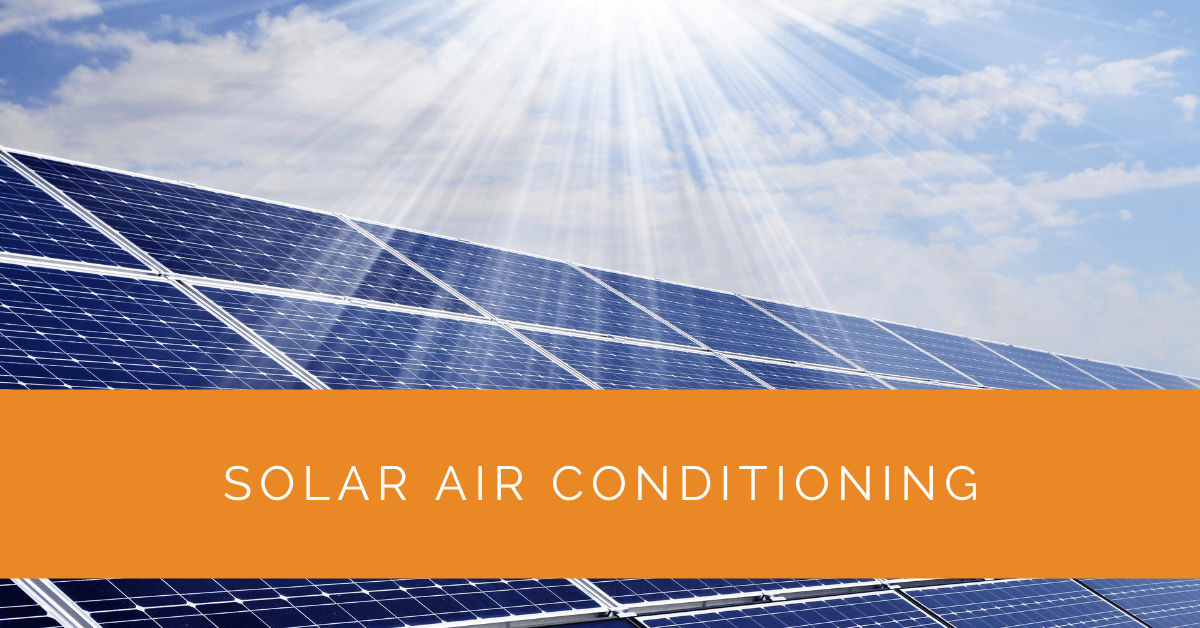As the demand for cooling continues to rise, finding sustainable solutions becomes imperative. Solar air conditioning offers a promising approach by utilizing solar power to meet cooling needs efficiently and environmentally. This article delves into the workings of solar air conditioning systems, their benefits, and their potential to transform how we cool our spaces.
Contents
- 1 Key Takeaways
- 2 How Solar Air Conditioning Works
- 3 Advantages of Solar-Powered Air Conditioning
- 4 Types of Solar Air Conditioning Systems
- 5 Selecting the Best Solar Air Conditioning System
- 6 Installation and Maintenance of Solar Air Conditioning
- 7 Is Solar Air Conditioning Worth It?
- 8 Overcoming Challenges and Limitations
- 9 Case Study: Implementing Solar Air Conditioning for Energy-Efficient Cooling
- 10 Expert Insights From Our Solar Panel Installers About Solar Air Conditioning
- 11 Experience Solar Excellence with Us!
- 12 Conclusion
- 13 FAQ
Key Takeaways
- Solar air conditioning utilizes solar power to provide efficient and environmentally friendly cooling solutions.
- Solar-powered AC systems offer numerous benefits, including energy cost savings, reduced carbon emissions, and increased energy independence.
- Various types of solar air conditioning systems, such as photovoltaic, solar thermal, and hybrid systems, allow for flexibility and customization based on specific needs and resources.
How Solar Air Conditioning Works
Solar air conditioning systems harness the power of the sun to provide efficient and sustainable cooling. By leveraging solar panels or photovoltaic (PV) systems, sunlight is converted into electricity, which is then used to power the air conditioning unit.
The process begins with solar panels, which consist of photovoltaic cells that generate direct current (DC) electricity when exposed to sunlight. This DC electricity is then converted into alternating current (AC) using an inverter, making it compatible with the electrical requirements of the air conditioner.
The solar-generated AC power is channeled into the air conditioning system, which powers the compressor, fans, and other components necessary for cooling. The system operates similarly to conventional air conditioning units, with the difference in the energy source.
During insufficient sunlight, such as at night or on cloudy days, the system can draw supplemental power from the electrical grid or utilize energy stored in batteries. This ensures uninterrupted cooling, providing a reliable and consistent cooling experience.
Solar air conditioning systems can be integrated into new or existing buildings, offering a sustainable and energy-efficient alternative to conventional cooling methods. They provide comfort, reduce reliance on fossil fuels, and contribute to a greener future.
Advantages of Solar-Powered Air Conditioning
Solar-powered air conditioning offers numerous advantages for both homeowners and businesses. Let’s explore some of these benefits in detail:
Energy Efficiency and Cost Savings
One of the significant advantages of solar air conditioning is its high energy efficiency. These systems reduce reliance on grid electricity by utilizing solar power, resulting in lower energy bills and long-term cost savings. The energy savings can be substantial, especially during high electricity demand during peak cooling periods.
Solar air conditioning systems also have the potential to offset the cost of installation through various incentives and rebates offered by governments and utilities. These incentives can further enhance the financial viability of solar-powered cooling systems, making them an attractive investment.
Environmental Sustainability
Solar-powered air conditioning systems are crucial in reducing carbon emissions and mitigating climate change. By utilizing clean and renewable solar energy, these systems significantly reduce reliance on fossil fuel-based electricity, a major contributor to greenhouse gas emissions.
Switching to solar air conditioning helps reduce the carbon footprint associated with cooling operations. This environmentally friendly approach supports sustainable practices and contributes to a cleaner and healthier environment for future generations.
Energy Independence and Resilience
One of the key advantages of solar-powered air conditioning is the increased energy independence it provides. By generating their electricity, homeowners, and businesses can reduce their reliance on the electrical grid, thereby mitigating the impacts of power outages or fluctuations in energy supply.
Solar air conditioning systems with battery storage capabilities offer even greater resilience. Excess solar energy generated during the day can be stored in batteries and used at night or during periods of low solar availability, ensuring uninterrupted cooling and comfort.
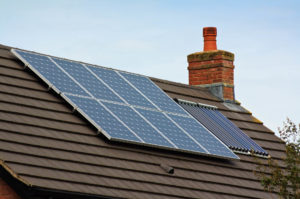
Types of Solar Air Conditioning Systems
Solar air conditioning systems come in various types, each offering unique features and benefits. Let’s explore the most common types of solar air conditioning systems:
Photovoltaic (PV) Systems
Photovoltaic systems, commonly known as solar panels, are the most widely used solar air conditioning technology. These systems consist of solar panels of photovoltaic cells that directly convert sunlight into electricity. The generated electricity powers the air conditioning unit, providing cooling without relying on grid power.
PV systems can be integrated into the existing electrical system of a building or installed as a standalone system dedicated to powering the air conditioner. They offer flexibility in design and scalability and can be expanded to meet increasing cooling demands.
Solar Thermal Systems
Solar thermal systems utilize the sun’s heat to provide cooling. These systems typically use solar collectors, which absorb thermal energy from the sun and transfer it to a refrigerant or working fluid. The heated refrigerant undergoes a phase change, producing chilled air distributed throughout the building.
Solar thermal systems are particularly suitable for regions with abundant sunlight and high cooling demands. Thanks to thermal energy storage capabilities, they offer excellent energy efficiency and can provide cooling even when sunlight is limited.
Hybrid Systems
Hybrid solar air conditioning systems combine solar power with conventional cooling technologies. These systems integrate solar energy with heat pumps, absorption chillers, or other cooling technologies to maximize efficiency and provide reliable cooling under varying weather conditions.
Hybrid systems offer the advantage of utilizing solar power when available and seamlessly switching to alternative power sources when needed. This flexibility ensures continuous and efficient cooling, making hybrid systems an excellent choice for areas with fluctuating solar availability.
Selecting the Best Solar Air Conditioning System
Selecting the right solar air conditioning system requires careful consideration of several factors. Here are some key considerations to help you make an informed decision:
Cooling Requirements and System Capacity
Start by assessing the cooling requirements of your space. Consider room size, insulation, occupancy, and local climate conditions. Properly sizing the system ensures optimal performance and energy efficiency.
The capacity of the solar air conditioning system should align with the cooling needs of the space. Undersized systems may not provide sufficient cooling, while oversized systems can result in inefficiency and unnecessary energy consumption.
System Efficiency and Performance
Evaluate the efficiency and performance characteristics of different solar air conditioning systems. Look for systems with high Seasonal Energy Efficiency Ratio (SEER) ratings, which indicate better energy efficiency and lower operating costs.
Consider the coefficient of performance (COP) for heat pump-based systems. Higher COP values indicate greater energy efficiency in both cooling and heating modes.
Available Solar Resources
Assess the solar resources available at your location. Factors such as sunlight intensity, shading, and roof orientation can affect the performance of the solar panels. Conduct a solar site analysis or consult with solar energy professionals to determine your site’s solar potential.
Financial Considerations
Consider the upfront cost, long-term savings, and return on investment of the solar air conditioning system. Evaluate available incentives, such as tax credits or rebates, that can help offset the initial installation costs. Compare the projected energy savings over the system’s lifespan with the upfront investment to determine the financial viability.
Quality and Reliability
Choose reputable manufacturers and certified installers to ensure the quality and reliability of the solar air conditioning system. Look for systems with warranties and good customer reviews. Proper installation and adherence to industry standards are crucial for optimal performance and longevity.
Considering these factors, you can select the best solar air conditioning system that meets your cooling needs, maximizes energy efficiency, and provides long-term cost savings.
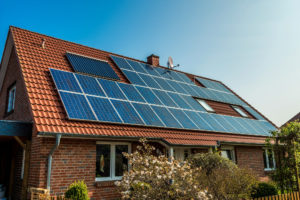
Installation and Maintenance of Solar Air Conditioning
Proper installation and regular maintenance are essential for optimal performance and longevity of solar air conditioning systems. Here are some key considerations:
Professional Installation
To ensure the proper installation of a solar air conditioning system, hiring qualified and experienced professionals is recommended. Solar installation companies with expertise in solar energy systems and air conditioning technology can provide guidance, design the system, and ensure compliance with local regulations.
Professional installers evaluate roof orientation, structural integrity, electrical requirements, and shading to determine the optimal placement and configuration of solar panels and associated equipment. They also handle the electrical connections and ensure safe and efficient system operation.
Ongoing Maintenance
Regular maintenance is crucial to keep the solar air conditioning system in optimal condition. Here are some maintenance practices to consider:
- Solar Panel Maintenance: Keep the solar panels clean and free from debris, dust, or shading that could impact their performance. Periodic cleaning and inspection ensure maximum sunlight absorption.
- Electrical Components: Regularly inspect electrical connections, wiring, and inverters to ensure they are secure and functioning correctly. Any signs of damage or wear should be addressed promptly.
- Refrigerant Levels: Monitor and maintain the proper refrigerant levels in the system. Low refrigerant levels can reduce system efficiency and cooling capacity.
- Air Filters: Regularly clean or replace air filters to ensure adequate airflow and optimal cooling performance.
- System Performance Monitoring: Monitor the system’s performance and energy production using monitoring tools or software. This lets you detect any issues or deviations from expected performance and take corrective actions.
- Professional Servicing: Schedule periodic professional maintenance visits to conduct thorough inspections, address potential issues, and optimize system performance. Professional technicians can perform more comprehensive checks and maintenance tasks.
By following these maintenance practices and scheduling regular professional servicing, you can ensure that your solar air conditioning system operates efficiently and reliably throughout its lifespan.
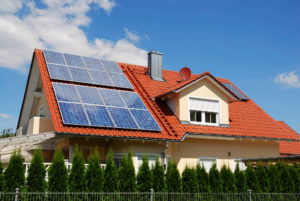
Is Solar Air Conditioning Worth It?
Many homeowners and businesses wonder if it is worth the investment when considering solar air conditioning. Here are some key factors to consider:
Financial Viability
Assess the financial viability of solar air conditioning by analyzing the cost-benefit ratio. Consider the upfront cost of the system, potential tax credits or incentives, and the estimated long-term energy savings. A comprehensive cost-benefit analysis can help determine the return on investment and the payback period.
Energy Cost Savings
Solar air conditioning systems can significantly reduce energy costs. By generating their electricity, these systems minimize reliance on the grid and mitigate the impact of rising electricity prices. The extent of energy cost savings depends on local utility rates, system efficiency, and the amount of solar power harnessed.
Environmental Impact
Solar air conditioning systems contribute to environmental sustainability by reducing carbon emissions and dependence on fossil fuels. Utilizing clean and renewable solar energy, these systems help combat climate change and support the transition to a greener future.
Increased Property Value
Installing solar air conditioning systems can enhance the value of your property. With growing awareness of sustainability and energy efficiency, solar-powered homes and businesses are increasingly attractive to potential buyers or tenants. Solar air conditioning systems add a unique selling point and can provide a competitive edge in the real estate market.
Considering these factors, solar air conditioning can be a worthwhile investment for homeowners and businesses seeking long-term energy savings, reduced environmental impact, and increased property value.
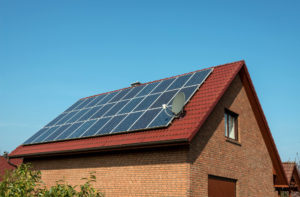
Overcoming Challenges and Limitations
While solar air conditioning offers numerous benefits, there are also challenges and limitations to consider. Here are some key points to address:
Initial Investment Cost
Solar air conditioning systems typically cost more upfront than conventional AC units. This initial investment can be a barrier for some homeowners or businesses. However, evaluating the long-term savings and benefits that outweigh the initial cost is important, such as reduced energy bills and potential incentives.
Sunlight Availability
Solar air conditioning systems rely on sunlight to generate electricity. Therefore, their performance is subject to variations in sunlight availability. Cloudy days, shading from nearby buildings or trees, and seasonal changes can impact the system’s energy production. However, advancements in solar panel technology and energy storage systems have mitigated these limitations, ensuring greater system reliability.
System Complexity
Solar air conditioning systems can be more complex than conventional AC units due to the integration of solar panels, inverters, and electrical components. Proper design, installation, and system configuration ensure seamless operation and optimal performance. Hiring experienced solar installers familiar with solar energy systems and air conditioning technology helps overcome this challenge.
Climatic Conditions
Climatic conditions, such as extreme heat or humidity, can affect the efficiency and performance of solar air conditioning systems. High temperatures may reduce system efficiency or require additional cooling capacity. However, advancements in technology and system design have addressed these challenges, resulting in more robust and resilient solar air conditioning solutions.
By addressing these challenges through proper system design, professional installation, and leveraging advancements in solar and air conditioning technologies, the limitations associated with solar air conditioning can be overcome, making it a viable and effective cooling solution.
Case Study: Implementing Solar Air Conditioning for Energy-Efficient Cooling
Background
At Solar Panels Network USA, our mission is to deliver innovative and sustainable energy solutions. One of our recent projects involved installing a solar air conditioning system for a large residential complex seeking to reduce energy costs and minimize environmental impact. This case study highlights the comprehensive process and impressive results achieved through our solar air conditioning solution.
Project Overview
The residential complex faced high energy costs due to extensive use of conventional air conditioning units. The management aimed to transition to a more sustainable cooling solution without compromising comfort. After evaluating various options, they opted for a solar air conditioning system to harness renewable energy and achieve long-term cost savings.
Implementation
Initial Assessment and Design
We began with a thorough assessment of the complex’s cooling requirements and solar potential. Factors such as roof space, sunlight exposure, and existing electrical infrastructure were considered. Our team designed a customized solar air conditioning system integrating photovoltaic (PV) panels and a high-efficiency AC unit.
Installation Process
- Solar Panel Installation: Our certified installers mounted the PV panels on the rooftops, ensuring optimal orientation and tilt for maximum sunlight absorption. The panels were connected to an inverter to convert the generated DC electricity into AC power suitable for the air conditioning unit.
- AC Unit Integration: The solar-generated AC power was directed to the air conditioning system. We installed energy-efficient AC units designed to operate seamlessly with solar power. The system was configured to draw supplemental power from the grid during insufficient sunlight, ensuring continuous cooling.
Testing and Commissioning
After installation, we conducted rigorous testing to ensure the system’s functionality and performance. This included verifying electrical connections, measuring power output, and assessing the cooling efficiency under various conditions. Any discrepancies were promptly addressed to optimize performance.
Results
- Energy Cost Savings: The solar air conditioning system significantly reduced the complex’s reliance on grid electricity, resulting in substantial energy cost savings. The residents experienced a noticeable decrease in their monthly electricity bills, enhancing their overall satisfaction.
- Environmental Impact: By utilizing clean solar energy, the complex reduced its carbon footprint and contributed to environmental sustainability. The transition to solar air conditioning aligned with the complex’s commitment to green initiatives and promoted a healthier environment.
- Increased Property Value: The installation of a solar air conditioning system added significant value to the property. Prospective tenants were attracted by the eco-friendly cooling solution, making the complex more appealing in a competitive real estate market.
Summary
This case study illustrates the successful implementation of a solar air conditioning system for a large residential complex. Our comprehensive approach, from initial assessment and design to installation and testing, ensured optimal performance and impressive results. The project demonstrated the financial and environmental benefits of solar air conditioning, highlighting its potential as a sustainable cooling solution for residential and commercial properties.
Expert Insights From Our Solar Panel Installers About Solar Air Conditioning
Solar air conditioning is not just about harnessing the sun’s power; it’s about creating a sustainable future. These systems provide efficient cooling while significantly reducing energy bills and carbon footprints.
Senior Solar Installer
The integration of photovoltaic systems with air conditioning units represents a significant advancement in green technology. It allows homeowners to achieve energy independence and resilience against grid fluctuations.
Solar Energy Technician
Solar-powered AC systems offer a unique blend of efficiency and sustainability. The ability to store excess solar energy ensures consistent cooling even when sunlight is scarce.
Solar System Engineer
Experience Solar Excellence with Us!
Trust in Solar Panels Network USA, where our seasoned experts deliver top-quality solar solutions for homes and businesses nationwide. With a legacy of countless successful installations and a commitment to sustainable energy, we’re your reliable partner in the solar journey. Ready for a brighter, eco-friendly future? Call us now at (855) 427-0058 and harness the power of the sun!
Conclusion
Solar air conditioning systems offer a sustainable, energy-efficient approach to cooling homes and businesses. By harnessing the sun’s power, these systems reduce reliance on the grid, lower energy costs, and contribute to reducing carbon emissions. Embracing solar-powered air conditioning provides comfortable indoor environments and contributes to a greener and more sustainable future for generations to come.
FAQ
Can an air conditioner be powered by solar?
Yes, air conditioners can be powered by solar energy. Solar air conditioners utilize solar power to generate electricity that powers the cooling system, offering an energy-efficient and sustainable alternative to traditional grid-powered air conditioning.
Are solar air conditioners worth it?
Solar air conditioners can be a worthwhile investment for several reasons. They reduce reliance on grid electricity, resulting in lower energy bills and long-term cost savings. Additionally, they contribute to a greener and more sustainable future by reducing carbon emissions and dependence on fossil fuels.
How many solar panels would it take to run an air conditioner?
The number of solar panels required to power an air conditioner depends on various factors, such as the unit’s cooling capacity, energy efficiency, local climate conditions, and the desired level of energy independence. It is best to consult with a solar energy professional who can evaluate your specific needs and calculate the appropriate number of solar panels for your air conditioning system.
About the Author
Solar Panels Network USA stands at the forefront of solar energy solutions, driven by a team of seasoned solar engineers and energy consultants. With over decades of experience in delivering high-quality solar installations and maintenance, we are committed to promoting sustainable energy through customer-centric, tailored solutions. Our articles reflect this commitment, crafted collaboratively by experts to provide accurate, up-to-date insights into solar technology, ensuring our readers are well-informed and empowered in their solar energy decisions.

